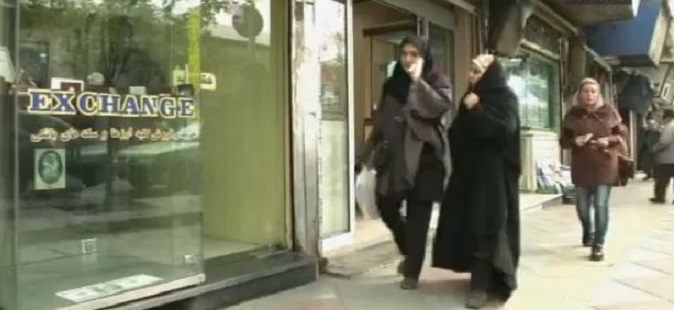U.S. officials are struggling to assure Middle East allies that the financial relief provided to Iran under the recently agreed Geneva interim agreement is relatively limited, and that – per the National Journal – “key sanctions would remain in force against Iran’s disputed nuclear program” during the agreement’s six-month period.
After meeting privately with Kerry on Thursday, Netanyahu said he has “expressed … concern since Geneva that the sanctions would begin to unravel” as a result of the half-year agreement. “Steps must be taken to prevent further erosions of sanctions,” the Israeli leader said, according to a State Department transcript of his comments.
Kerry countered that the most critical Iran penalties are still in effect. The Persian Gulf power is subject to punitive language in four U.N. Security Council resolutions, as well as numerous measures enacted by the United States, the European Union and others. “We say to any country that contemplates moving ahead of sanctions, don’t, because those sanctions will continue to be enforced,” the top U.S. diplomat said. “The fundamental sanctions regime of oil and banking remains absolutely in place.” He added that the Obama administration would bolster its implementation of existing sanctions through the Treasury Department and other federal agencies.
But Netanyahu’s scenario echoes the almost immediate criticism that the administration faced over the extent and structure of its sanctions concessions. Those concerns were dismissed as “fanciful” by analysts linked to the administration. Since then the Associated Press has quoted top auto manufacturing experts predicting that “international investors are expected to re-enter Iran’s market soon,” Reuters has documented how Iran is preparing to reassert itself in oil markets, and former Secretaries of State Henry Kissinger and George Shultz have assessed that “the threatened reimposition and strengthening of sanctions… risks losing its edge.” Lastweek the Wall Street Journal cataloged a range of companies that are preparing to reenter Iran’s market. The Journal noted that while sanctions relief was only granted to a few sectors of the economy, “a much wider set of European and US companies – from pharmaceutical firms and medical-equipment makers to food companies and traders – also stands to regain lost Iranian trade as soon as relief measures are formally adopted next month.” The Journal describes the relief as coming from “the fine print of the deal,” and particularly emphasized that renewed contacts would stem from the desire of “executives [to] re-establish ties in the Middle East’s largest consumer market.”
[Photo: euronews / YouTube ]




